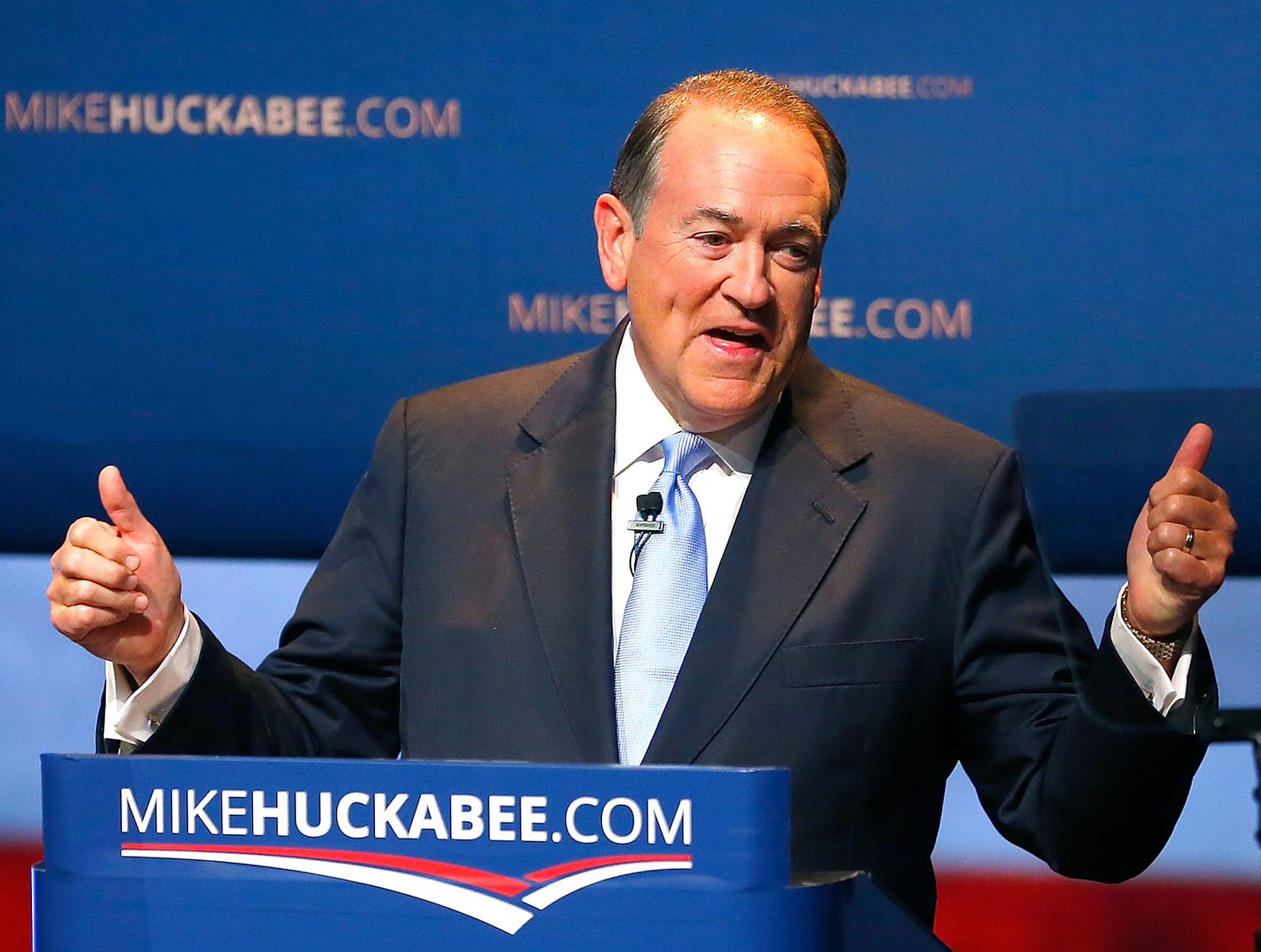The Huckabee You Should Have Known
Named the Sixth Most Interesting Daily Caller Op-Ed of 2011.
Named the Sixth Most Interesting Daily Caller Op-Ed of 2011.
by Rod D. Martin
May 24, 2011
A few days before Mike Huckabee announced that he wasn’t running for president, I had lunch with a friend in Philadelphia, a leading fiscal conservative and business leader. He told me, “If Romney wins the Republican nomination, I’m staying home in November. If Huckabee wins, I’m voting for Obama.”
How did such a gulf arise between the would-have-been Republican front-runner and the keepers of Goldwater’s flame (who also just happen to be the gatekeepers to a great deal of any successful candidate’s money — money Huckabee received none of in 2008)?
You see, I worked for Mike Huckabee once, back when he was new in the governor’s office. I remember a young leader brimming with free-market ideas. One of the first tasks he gave me was to investigate whether there might be a way to create meaningful health savings accounts on the state level in Arkansas. His eyes would light up when he spoke of such thing…



